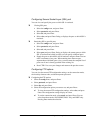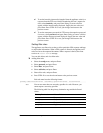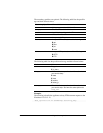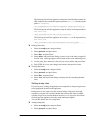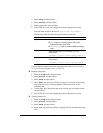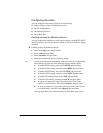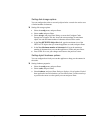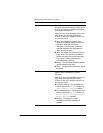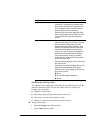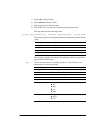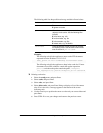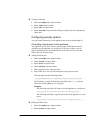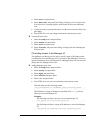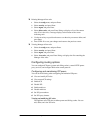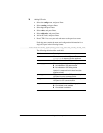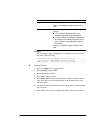
Chapter 5 Using the Command-Line Interface 79
Configuring caching rules
The appliance uses caching rules to determine how a particular group of URL
addresses should be cached. You can add, delete, and view caching rules.
Caching rules can specify:
✔ Whether to cache objects
✔ How long to keep (pin) particular objects in the cache
✔ How long to consider cached objects as fresh
✔ Whether to ignore no-cache directories from the server
▼ Adding caching rules
1 Select the config menu, and press Enter.
2 Select cache, and press Enter.
Set FTP objects expiry FTP objects carry no time stamp or date
information. The appliance considers them
fresh for the amount of time specified here.
This "freshness" time is counted from the
time the object arrives in the cache.
Enter the time in seconds and press Enter.
After pressing Enter, press CTRL-X to save
your changes and return to the previous
screen.
Internet Explorer options Versions of Microsoft Internet Explorer do not
request cache reloads from reverse proxies
and transparent caches when the user
presses the browser Refresh button. This
behavior can prevent users from manually
reloading content directly from the origin
servers. You can configure the appliance to
treat Microsoft Internet Explorer requests
more conservatively. Doing so provides
fresher content at the cost of serving fewer
documents from cache.
Internet Explorer requests force a check with
the origin server.
Select from one of the following options and
press Enter. After pressing Enter press
CTRL-X to save your changes and return to
the previous screen.
❚ Never
❚ For IMS Revalidation Requests
❚ Always
Option (Continued) Description (Continued)



